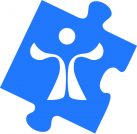Chattanooga Autism Center
Chattanooga, Tennessee 37404
United States phone: view phone423-531-6961 website: Visit Website
Description
We are a parent- and advocate-driven nonprofit organization. Most of our programs are free and created and coordinated by parent volunteers or adults with autism. We also have an outpatient clinic that provides therapy and assessments and accepts insurance. Our other programs include:
⦁ STAGES (adult transitional services and independent living program)
⦁ REACH (summer learning program)
⦁ Autism Workshop Series (free educational sessions open to the public)
⦁ Annual Autism Conference (450+ attend each year)
⦁ Resource Connection Services (update webpage lists, reply to email and phone questions from community)
⦁ HOPE (support group for parents)
⦁ Greater Chattanooga Aspies (support & social group for adults with autism)
⦁ IEP Mentor Program (IEP support for parents)
⦁ Spanish-language Outreach (Autism resources and support for the Spanish-speaking community)
⦁ Out and About (sensory-friendly outings in the community, like movies, baseball games, etc...)
⦁ CAC teens (social group for teens with autism)
⦁ Parents Night Out / Respite opportunities
Our website has descriptions of programs and lists of regional resources.
Volunteers are usually at the center from 9am to 4pm. Best to call to verify someone is there before you come in.
Additional Information
Accepts Insurance: Yes
By Appointment Only: No
Accepts Walk-Ins: No
Accepts Credit Cards: Yes
Wheelchair Accessible: Yes
Free Parking: Yes
Sensory Friendly: Yes
List of Services: Autism Assessments (ADOS-2); Cognitive Behavior Therapy for kids/adults; adult transitional program; summer learning program; Autism Workshops; Annual Autism Conference;Resource Connection Services; Support groups, Parents night Out; More!
Company History: Our Story:
In 2009, I. Leslie Rubin, MD and Karen Weigle, PhD created the Chattanooga Autism Center. They were both working in the Developmental Disabilities Clinic at The TEAM Centers and had 100s of clients who received clinical services every month. These parents would meet up in the waiting room, share stories, try to support each other, and discuss what programs they wished our region had.
Drs Rubin and Weigle heard their concerns and saw the great potential these parents offered. They hosted several meetings and asked these parents to identify what programs they wished our local autism community had. The parents said they desired more education, respite services, ways to connect with other families, access to books and periodicals on autism, more opportunities for their kids, and to build greater awareness in the community. This group of parents (just a handful at first) banded together to form the Chattanooga Autism Center (CAC) which became a new program at the TEAM Centers.
The parents and clinicians and other advocates volunteered their time and created a free workshop series, an educational outreach project, a parent mentor program, and began building an autism library. They hosted their first community conference on autism and had 200 people attend. They created a website and a Facebook group and membership rose from a dozen to 200 people within a year.
The meeting became a regular event and turned into the Parent / Advocate Collaboration Team or PACT. The PACT meetings continue to serve as a place to present ideas and then create committees or get volunteers to develop the ideas into actual existing programs. Meetings are open to all who wish to contribute to the autism community.
Many parents traveled a long distance to come to the clinic and to PACT meetings and this was difficult for them. They wanted to build resources in their own communities and the CAC definitely wished to support communities that were outside of Chattanooga and help them hold their own PACT meetings and build their own local support systems and programs. The first area to do this was in Cleveland TN and formed the Cleveland-CAC. They have their own PACT meetings and started a “parents night out” program for their region. The CAC hopes that other communities (e.g., north Georgia, Rhea County, Meigs, County, etc…) decide to develop similar groups and is ready to support them when they approach us.
In 2011, the clinic at the TEAM Centers lost its funding and had to close. The CAC decided to incorporate and become its own nonprofit to continue to fulfill its mission. The CAC continues to grow exponentially, meet, create programs, connect families, and to provide autism education in the region. It has had successful annual conferences (over 500 attend now), an ongoing free workshop series, a growing parent mentor program, and various events and activities throughout the year.
Other programs continue to be developed thanks to passionate individuals and the support of the PACT. Scott Kramer, an adult with autism, created a social and support group for adults called “Greater Chattanooga Aspies”. Sue Lowery and several others are developing a project that will help provide transitional support (and hopefully housing) for adults with autism spectrum disorders as they move into young adulthood and increasing levels of independence in the community. Another group of parents are creating a committee that seeks to increase the voices of families who have kids with special needs as they work to improve educational opportunities in our schools. And, there are plans to begin providing clinical services for the underserved autism population in our region.
The CAC grows because of the help and support of people in our community. The help comes in the form of volunteerism, ideas, promotion, and donations. We encourage you to get involved by signing up for our email announcements, joining our FB group, attending PACT meetings or other events, or donating money and/or your skills to our causes.




